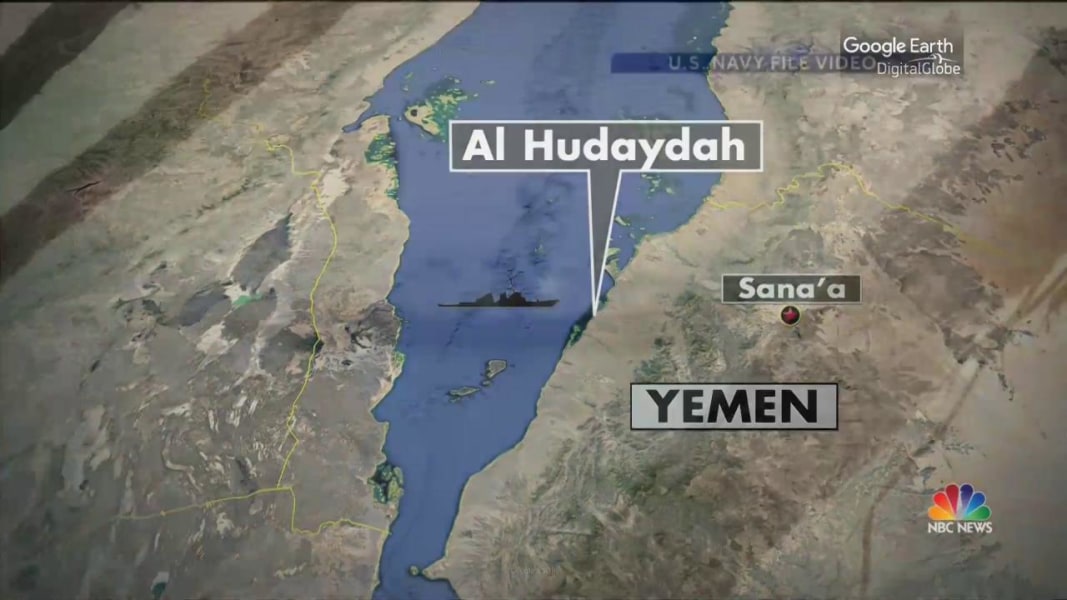
The Houthis are the Iran-backed Shia army who overthrew our ally, the Yemeni government, in March 2015 (they are currently waging war against the Saudis in the region).
As Iran continues to flout international law, Obama released hundreds of billions of dollars in sanctions relief as part of his Iranian surrender pact that was “heralded” last summer as some wonderful historic breakthrough. A breakthrough for Iran, a crushing defeat for us.
Obama and Hillary have unleashed a monster, a soon-to-be-nuclear Iran. We have none of the benefits that Hillary and Obama said the deal would yield. On the contrary, just the opposite has happened (as many of us predicted). Instead of becoming part of the civilized world, the Islamic Republic of Iran has become more aggressive, more warlike, escalating wars in the region and beyond.
The Joint Comprehensive Plan of Action (JCPOA) was one of the greatest diplomatic agreements of our time, a last-ditch effort to stop Iran from acquiring a nuclear bomb and thus avert inevitable military action by the United States and its allies. Hard negotiations provided a verifiable inspections plan that would keep Iran walking the straight and narrow for at least a decade, if not longer. The media, of course, served only as the impartial platform for analysis and debate.This was all nonsense.
Anyone who doubted this narrative or raised almost any objections to the deal was just a hater, maybe even a racist with a personal grudge against Barack Obama. (Also against the deal, of course: Jews with divided loyalties.) After all, the experts—non-partisan, of course—assured us that everything was in order.
“USS Mason Fired on Again Off Coast of Yemen: Officials,” Courtney Kube, NBC News, October 16, 2016:
The U.S. Navy destroyer USS Mason was fired on again in international waters off the coast of Yemen, but the ship deployed countermeasures and the vessel was not struck, two U.S. officials said.
The incident occurred late Saturday or early Sunday local time. At least one missile was fired, the officials said.
“The Mason once again appears to have come under attack in the Red Sea, again from coastal defense cruise missiles fired from the coast of Yemen,” Navy Admiral John Richardson, chief of naval operations, told reporters at an event in Baltimore Saturday.
The destroyer was targeted by missiles fired from rebel-controlled areas in Yemen twice earlier this week, prompting the U.S. military to launch cruise missiles that destroyed three radar sites in response.
After the earlier attempted missile attacks this week, a Defense Department official warned that those who fire on U.S. vessels do so at their peril.
Related: Who Are Yemen’s Houthis and What Do They Want?
Yemen is embroiled in a two-year-long conflict between Houthi rebels and forces loyal to the President Abed Rabbo Mansour Hadi. More than 4,000 civilians have been killed since the conflict escalated in March 2015, the Office of the United Nations High Commissioner for Human Rights said on Monday.
Secretary of State John Kerry called for a cease fire between the groups Sunday in London. “We cannot emphasize enough today the urgency of ending the violence in Yemen,” he told reporters, according to Reuters.
The U.S. strike against radar installations in Yemen were carried out by the USS Nitze at around 4 a.m. Thursday local time and involved Tomahawk cruise missiles, the military said.
“They have everything that they need to defend themselves from these attacks and respond when needed,” Richardson said of the ships.
The missiles were fired on the USS Mason this week as it was in the area of the Bab el-Mandeb Strait, officials said.
After the U.S. strikes in Yemen, Pentagon press secretary Peter Cook said in a statement: “The United States will respond to any further threat to our ships and commercial traffic, as appropriate, and will continue to maintain our freedom of navigation in the Red Sea, the Bab al-Mandeb, and elsewhere around the world.”







































No comments:
Post a Comment